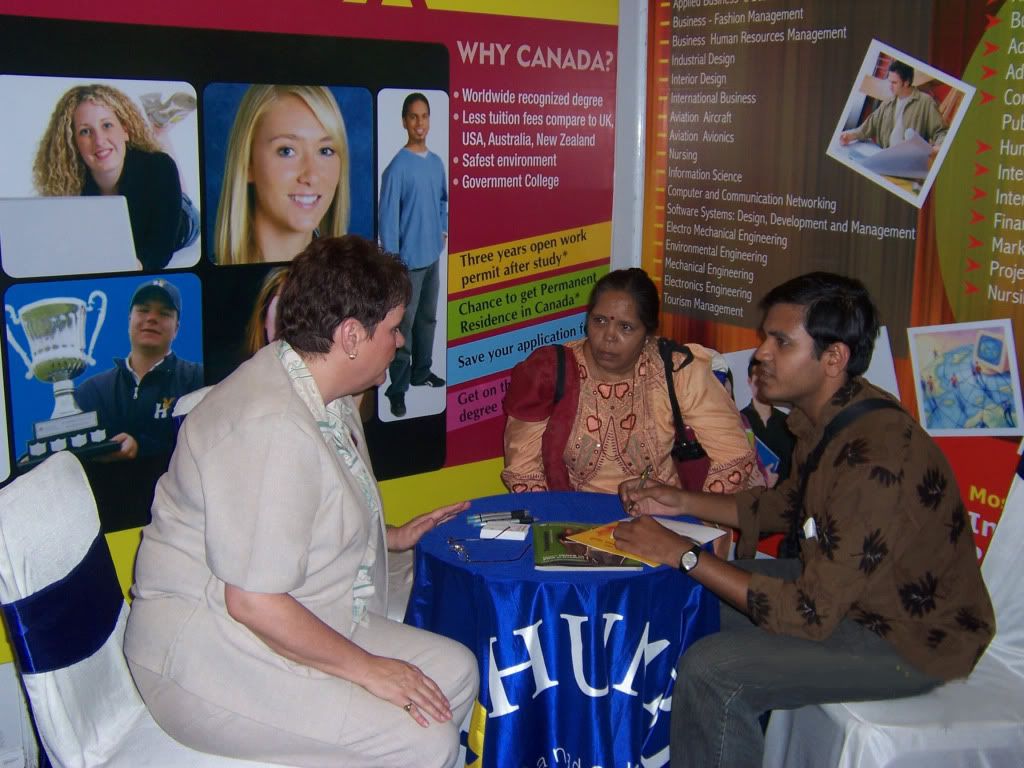| | A four-year pre-professional degree, such as a BS in Architecture, BS in Architectural Studies, etc., followed by a two-year course leading to the Master of Architecture. The latter two years may require the GRE and a portfolio for entrance. |
| | After obtaining a Bachelor's degree in a non-architecture subject, completing a three-to-four year Master of Architecture degree. May require the GRE. |
The Bachelor of Architecture and the Master of Architecture programs must be accredited by the National Architectural Accrediting Board (NAAB). There are over 150 such programs in 111 schools. The four-year pre-professional degrees, however, do not have to be accredited by the NAAB for either entrance to the Master of Architecture program or for licensing purposes.
Licensure
Most states require that the first professional degree must be followed by three years of an internship, after which the candidate must take the four-day comprehensive Architect Registration Examination. Each state may have slightly different requirements, and it is necessary to check with the state registration board in which one wishes to be licenses.
Post-Professional Study
Those who already have a professional degree in architecture may wish to obtain a Master's or doctoral degree in a specialized area such as design theory, solar design, etc. These programs are not accredited by NAAB or CACB. GRE and a portfolio are usually required.
Non-Professional Graduate Architecture Programs
There are some graduate degrees in architecture which do not require a first professional degree for entry, They are intended for people who wish to pursue non-professional graduate work in architecture. An example is the Masters of Arts in Architectural Studies (M.A. Arch.).
References
Guide to Architecture Schools, 6th ed. 1998, Washington, DC, Association of Collegiate Schools of Architecture. A comprehensive reference, but only published every five years. "Accredited Programs in Architecture". Washington, DC, National Architectural Accrediting Board, 2001. Available on web site: http://www.naab.org
| The legal system in the United States, on the federal
level and in almost all states, is based on the British system of common law. One state, Louisiana, has a system modeled on the French legal code.
First Professional Degree
The U.S. first professional degree, the juris doctor (J.D.), provides an education strongly focused on preparation for U.S. practice, with little opportunity for comparative or specialty study. For this reason, and because preparation in U.S. law will not easily transfer toward practice in other countries, the J.D. is | |
| usually inappropriate for foreign nationals. Although law schools offer individual courses that emphasize particular subject areas such as environmental law or taxation, there are no J.D. programs concentrating on any single specialty.
J.D. degree programs involve three years of study, and are entered following four years of undergraduate study in any major. Competition for admission is intense for both U.S. and international students. Requirements generally include fluency in English, an excellent undergraduate academic record, and a satisfactory score on the Law School Admission Test (LSAT). (See http://www.lsac.org for LSAT registration information.) To practice in the United States, graduates must also pass the bar examination and other requirements of the state where they wish to work.
Graduate Legal Education
The master of comparative law (M.C.L.), also known as the master of comparative jurisprudence (M.C.J.), is a particularly appropriate degree program for international lawyers. Recognizing that legal systems in many countries differ from common law as practiced in the United States, these programs acquaint lawyers from other countries with U.S. legal institutions and relevant specialties of U.S. law. Another graduate option is the master of laws (L.L.M.), a degree offered in a variety of specialties or as a self-designed program, with appropriateness for the international practitioner varying from program to program. Programs in international law or international business law may also be of interest.
Almost all master’s programs in law last one year and admit students only for the fall semester. Programs can be planned according to the interests of the student. During study, international lawyers have the opportunity to observe courts and government agencies in the United States. Entrance requirements include a first degree in law, a strong academic background, letters of reference, a statement of purpose and/or writing samples, and a high level of English proficiency as demonstrated
by the Test of English as a Foreign Language (TOEFL) for students whose law degree was not in the
English language. Most graduate law programs do not require standardized admissions tests.
Doctoral programs in law also exist. They admit only a small number of promising applicants, usually from among those who have completed a master’s program at a U.S. law school and who plan to enter a career as a law school faculty member. Financial assistance may be more readily available to law students intending to continue towards a doctoral degree than to those seeking only a one-year master’s program.
Short-term Legal Education
Many U.S. law schools offer programs, particularly in the summer, either designed for or appropriate for international lawyers. These usually last between one week and two months. Professional associations and private training organizations offer similar programs. Your nearest U.S. educational information or advising center may be able to provide information on other
options, such as tours to visit U.S. legal institutions.
Licensure
Most states limit licensure to graduates of American Bar Association approved schools and require passing of a written examination. In most states, this includes the 6-hour MBE (Multistate Bar Examination) and a locally prepared 6-hour State bar examination. Some states also require the 3-hour MSEE (Multistate Essay Examination) and Multistate Performance test (MPT). Currently 47 states also require law students to pass the Multistate Professional Responsibility Examination (MPRE). For detailed requirements about licensure or entrance to the bar, write to the Board of Bar Examiners of the state concerned. Or, consult the latest edition of A Review of Legal Education in the United States.
References:
The Official Guide to U.S. Law Schools: Prelaw Handbook. Washington, D.C.: Law School
Admission Council. Annual Directory of Graduate Law Degree Programs. Washington, D.C. Federal Reports, Inc. A Review of Legal Education in the United States. Law Schools and Bar Admission
Requirements for First Professional Law Degree Program:
At least three years of undergraduate education, and preferably a bachelor's degree.
Passing the LSAT (Law School Admission Test)
A high level of English ability Some law schools at state universities may be very restricted in the number of out-of-state students they can accept.
Information about the LSAT, which is offered four times a year, can be obtained from:
Law School Admission Council
P.O. Box 40
Newtown, PA 18940-0998
Or: http://www.lsac.org |
|
|







 2:57 AM
2:57 AM
 Jaimin Modi
Jaimin Modi


 Enter your email address to get free updates:
Enter your email address to get free updates: